Discover AS Monaco Football Club: Dive into the rich history, achievements, and latest news of AS Monaco, one of France’s top football clubs. Explore player profiles, match highlights, and Monaco’s journey in Ligue 1 and European leagues.
AS Monaco Football Club
Introduction
AS Monaco Football Club, known simply as Monaco, is one of the most prestigious and historically successful teams in French football. Founded in 1924, Monaco is unique in Ligue 1, representing the Principality of Monaco, a sovereign city-state on the French Riviera. Despite its small geographic size, the club has consistently been a powerhouse in French football and, at times, a formidable presence in European competitions.
Historical Background
Since its establishment, AS Monaco has embraced the principles of resilience and ambition. The club first gained significant traction in the 1960s, and its commitment to developing young talent and adopting innovative tactical approaches led to its emergence as a force in Ligue 1. Over the years, the club has faced ups and downs but has secured eight Ligue 1 titles, five Coupe de France trophies, and has reached the UEFA Champions League final, marking it as one of France’s premier clubs.
Achievements and Milestones
Ligue 1 Titles: AS Monaco has won the French league title eight times, with notable victories in the 1960s, 1980s, and 1990s. Their most recent triumph came in the 2016-2017 season under manager Leonardo Jardim.
- European Competitions: Monaco has also left its mark on the European stage, with its peak achievement being a runner-up finish in the 2003-2004 UEFA Champions League. Despite a smaller budget than some European giants, Monaco’s strategic talent scouting allowed them to compete effectively on the continent.
- Youth Development: Monaco is globally renowned for its youth academy, which has produced world-class talents like Thierry Henry, Kylian Mbappé, and Emmanuel Petit. The academy’s philosophy is built around fostering talent and integrating promising players into the first team, a strategy that has made Monaco a valuable contributor to French football.
Tactical Philosophy and Style of Play
Monaco’s tactical approach has evolved over the decades, adjusting to shifts in football trends while maintaining a focus on dynamic and attacking play. Traditionally, Monaco has emphasized:
Fast Transitions: The team has a history of exploiting rapid transitions from defense to attack. During the 2016-2017 title-winning season, for instance, Monaco relied on quick breakaways and speed on the wings, which maximized the effectiveness of players like Mbappé and Thomas Lemar.
Youth-Focused Tactics: Monaco’s reliance on young players has influenced their tactical setup, often prioritizing flexibility and energy on the field. Managers have favored high pressing and positional rotations that capitalize on the physical prowess and adaptability of younger talents.
Versatility in Formations: Monaco’s tactics are also known for their flexibility. The club has frequently alternated between 4-4-2 and 4-2-3-1 formations, depending on the players available and the opposition. This versatility helps the team remain competitive across various competitions and against diverse styles.
Financial Strategy and Player Transfers
Monaco has developed a unique financial model centered around player trading and recruitment. Situated in a wealthy region but representing a small population, Monaco has maximized its financial resources by focusing on identifying and developing young talents who can be sold to other clubs at substantial profit.
Scouting and Recruitment: The club’s scouting network is extensive and international, focusing on identifying potential stars at an early age. By investing in young players, Monaco ensures that they can leverage talent financially, a model demonstrated with players like Bernardo Silva, James Rodríguez, and Fabinho.
Key Sales and Impact: Over the last two decades, AS Monaco has made headlines with high-profile player sales, including the transfers of Anthony Martial to Manchester United, Kylian Mbappé to Paris Saint-Germain, and Thomas Lemar to Atlético Madrid. This approach has helped the club maintain financial stability and reinvest in the squad, ensuring long-term competitiveness.
Youth Academy and Development System
Monaco’s academy is a central component of its success. Emphasizing technical skills, tactical intelligence, and mental resilience, the academy shapes players to fit Monaco’s fast-paced, attack-oriented football. AS Monaco’s youth system has been instrumental in supplying talents not only to their senior team but also to top clubs across Europe.
Famous Graduates: Thierry Henry is perhaps the most famous graduate of the academy, with Kylian Mbappé quickly joining him as one of the most electrifying players to emerge from Monaco’s ranks in recent years. Other alumni include Lilian Thuram and Yannick Carrasco, highlighting the academy’s consistent ability to produce elite talent.
Development Focus: The academy emphasizes a holistic approach to player development, including sports science, psychology, and technical training. This well-rounded approach is tailored to ensure players are physically, mentally, and emotionally prepared for the demands of top-flight football.
Home Stadium: Stade Louis II
Monaco plays its home matches at Stade Louis II, a modern, 18,500-seat stadium located in the heart of Monaco. Named after Prince Louis II, the stadium is iconic for its picturesque setting and unique architecture, and its proximity to the Mediterranean Sea makes it one of the most distinctive football venues in Europe.

- Facilities: The stadium’s state-of-the-art facilities include a training ground, fitness areas, and a medical center, making it ideal for player development and recovery.
- Fan Experience: Although smaller in capacity than other Ligue 1 stadiums, Stade Louis II offers an intimate and exclusive atmosphere. The stadium also hosts international matches and is known for its high standards of fan engagement and hospitality.
Recent Challenges and Performance in Ligue 1
AS Monaco’s journey has not been without its challenges. Financial constraints, player turnover, and changing management have affected their consistency in recent seasons. Following the high of their 2017 Ligue 1 victory, Monaco experienced a turbulent period that saw them flirt with relegation and undergo multiple managerial changes.
- Rebuilding Process: In recent years, Monaco has focused on rebuilding. The club has invested in both experienced players and younger talents, aiming to create a balanced squad capable of challenging for domestic and European honors.
- Current Form and Strategy: Under recent managers, Monaco has sought to return to a possession-based game while maintaining the aggressive pressing style that has historically brought them success. As of the current Ligue 1 season, Monaco is striving to regain its status as a top-four contender, aiming for European qualification to solidify its financial and sporting position.
Key Players in the Current Squad
Several players stand out in Monaco’s current squad, contributing both leadership and technical quality to the team:
- Wissam Ben Yedder: A prolific striker, Ben Yedder is Monaco’s talisman and has been essential to their goal-scoring efforts. His technical ability, composure, and experience make him a valuable asset for the team.
- Aleksandr Golovin: Known for his creativity and flair, Golovin is a versatile midfielder who can influence the game both as a playmaker and as a goal-scoring threat. His tactical intelligence and dribbling skills make him a focal point of Monaco’s attack.
- Axel Disasi and Guillermo Maripán: In defense, Disasi and Maripán provide stability and athleticism. Their partnership in central defense is crucial for Monaco’s aspirations in both domestic and European competitions.
Fan Culture and Global Following
AS Monaco’s fanbase is diverse, drawing support from both the principality’s residents and international fans. Though not the largest fanbase in France, Monaco fans are passionate and fiercely loyal, supporting the team’s efforts through both highs and lows. The club’s presence in the UEFA Champions League has helped expand its reach globally, particularly in regions like Asia and the Americas.
- Supporter Clubs: Monaco has established fan clubs across Europe and beyond, helping build a community around the club and enhancing its visibility internationally.
- Social Media and Engagement: Monaco actively engages with fans through digital channels, offering unique insights, behind-the-scenes content, and player interactions that reinforce their brand and strengthen their connection with the fanbase.
Conclusion
AS Monaco Football Club is a storied institution within French football, balancing ambition with a unique approach to youth development, tactical innovation, and financial sustainability. With a well-defined player development system and a strategic outlook on the transfer market, Monaco remains one of Ligue 1’s most respected clubs. As they strive for future successes, Monaco’s blend of youthful promise and experienced leadership promises to keep them competitive domestically and on the European stage. The club’s resilience and adaptability in the face of challenges underscore its commitment to excellence, ensuring that AS Monaco remains a dynamic force in football.
With a new generation of talent and renewed ambitions, the future holds exciting possibilities for AS Monaco, a club that continually pushes the boundaries of what’s achievable in the beautiful game.
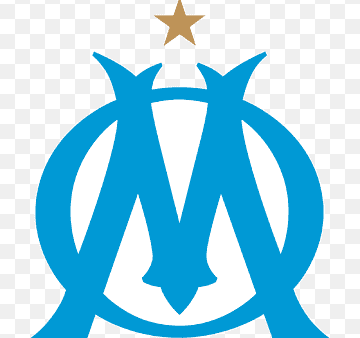

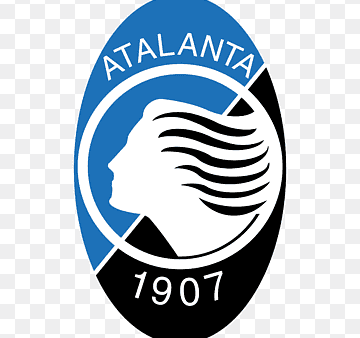







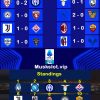
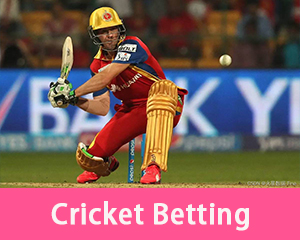

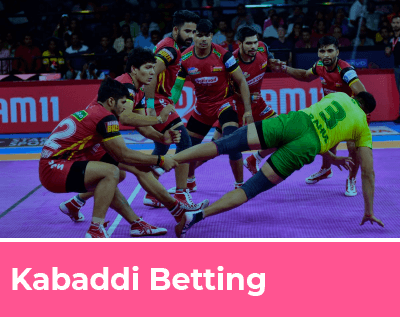


Monaco came into this match on a six-game unbeaten streak, including a draw against Paris Saint-Germain.
their last five matches across all competitions, Monaco has secured 3 wins and suffered 2 losses, demonstrating their ability to bounce back from setbacks.
with their last five matches each seeing over 2.5 goals scored. Sunday’s clash against Monaco is likely to follow suit, with Roberto De Zerbi and Adi Hütter expected to field attack-minded
form indicates low-scoring games, with under 3 goals in their last 10 Ligue 1 matches. Facing Monaco at Stade Louis II, expect a cautious approach. Betting on fewer than 3.5 goals seems
16 of Ligue 1 brings a thrilling clash between AS Monaco and Paris Saint-Germain at Stade Louis II. As two of France’s footballing giants prepare to